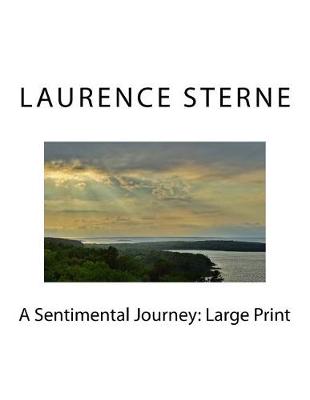Dover Thrift Editions
2 total works
Samuel Johnson and Samuel Richardson condemned it. James Boswell and Goethe proclaimed it a masterpiece. And from the beginning Sterne realized he had written a book that would not suit everyone's taste. For more than two centuries. Tristram Shandy (1759-67) has astounded - and by turns confounded, captivated, angered, and amused but ever entertained - readers worldwide. While on the surface a comic, disjointed account of the title character's life and times, the work is in fact a brilliant commentary on life's inherent chaos, the pointed challenge of British clergy-man-turned-author Laurence Sterne to the twin concepts of rationalism and sentimentalism. Delineating his views through skillfully drawn representations - among them Tristram, Yorick, and Uncle Toby - Sterne pinpointed issues central to not only his era but our own. Filled with thought-provoking ideas and marked by an open, conversational writing style, Tristram Shandy: A Book for Free Spirits is an adroit guide to understanding the aims and achievements of Sterne's masterpiece and to fully appreciating its lessons for contemporary times.
“Funny, human, highly learned and literary, sexy, and filled with psychological nuances that remain unrivaled at the hands of any other psychological writer.” —André Aciman
A Penguin Classic
A Sentimental Journey is a novel without a plot, a journey without a destination. It records the adventures of the amiable Parson Yorick, as he sets off on his travels through France and Italy, relishing his encounters with all manner of men and women—particularly the pretty ones. Sterne's tale rapidly moves away from the narrative of travel to become a series of dramatic sketches, ironic incidents, philosophical musings, reminiscences, and anecdotes; sharp wit is mixed with gaiety, irony with tender feeling. With A Sentimental Journey, as well as his masterpiece, Tristram Shandy, Sterne forged a truly original style and established himself as the first of the stream-of-consciousness writers.
This Penguin Classics edition features an introduction that discusses the novel in relation to Sterne's other writing and places it within the context of "sentimental" literature. Also included are a chronology, suggestions for further reading, and full explanatory notes.
For more than seventy years, Penguin has been the leading publisher of classic literature in the English-speaking world. With more than 1,800 titles, Penguin Classics represents a global bookshelf of the best works throughout history and across genres and disciplines. Readers trust the series to provide authoritative texts enhanced by introductions and notes by distinguished scholars and contemporary authors, as well as up-to-date translations by award-winning translators.
A Penguin Classic
A Sentimental Journey is a novel without a plot, a journey without a destination. It records the adventures of the amiable Parson Yorick, as he sets off on his travels through France and Italy, relishing his encounters with all manner of men and women—particularly the pretty ones. Sterne's tale rapidly moves away from the narrative of travel to become a series of dramatic sketches, ironic incidents, philosophical musings, reminiscences, and anecdotes; sharp wit is mixed with gaiety, irony with tender feeling. With A Sentimental Journey, as well as his masterpiece, Tristram Shandy, Sterne forged a truly original style and established himself as the first of the stream-of-consciousness writers.
This Penguin Classics edition features an introduction that discusses the novel in relation to Sterne's other writing and places it within the context of "sentimental" literature. Also included are a chronology, suggestions for further reading, and full explanatory notes.
For more than seventy years, Penguin has been the leading publisher of classic literature in the English-speaking world. With more than 1,800 titles, Penguin Classics represents a global bookshelf of the best works throughout history and across genres and disciplines. Readers trust the series to provide authoritative texts enhanced by introductions and notes by distinguished scholars and contemporary authors, as well as up-to-date translations by award-winning translators.

